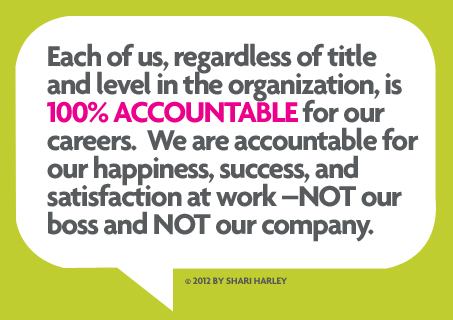Advil Free Performance Appraisal
I’ve never had a performance appraisal that didn’t make me want to quit. Throughout my 15-year corporate career, before starting Candid Culture,I had some great bosses. And I always got good ratings and positive reviews. But there was always some comment or piece of feedback, in every performance appraisal, that frustrated me or impacted my raise or bonus in a way that felt unfair.
And each time I got feedback that felt unfair, I looked for how I contributed to the situation.

Which means it’s our job to ask the expectations of the people we work with and collect their feedback throughout the year, so we’re not blind-sided at year end.
Below are some tips to ensure you give and receive a useful and trauma-free performance appraisal.
If you read my last blog post,you know that your boss may not know all the good and not-so-good things you do on a daily basis. It’s your job to let her know about your accomplishments.
Assemble a list of things you’ve accomplished this year. This list might include emails and feedback from people you work with both inside and outside your organization. Ask your boss’s permission to send her the list. And tell her the information is intended to make it easy to write your appraisal.
If you don’t have feedback from your peers and internal or external customers, ask for it. I define customers as anyone you need to get your job done and anyone who needs you to get their job done. Send a short email to five or six people with whom you work closely, and ask them to send your boss some feedback about your performance this past year. If they’re comfortable sending you the feedback directly, all the better. Guide your customers by asking specific questions. That way you’ll get specific feedback, versus, “Dave did a good job this year.”
Ask questions like:
- What’s one thing I did this year that made the most difference to you or your department?
- What’s one thing I could have done differently this past year?
Don’t be scared to ask for feedback from your customers. Most people are so hesitant to give negative feedback that they’ll typically be easier on you than you are on yourself.
Most performance appraisals only contain feedback from the last few months of the year. As managers sit in front of a blank appraisal form, it’s all they can remember. It’s your job to help your manager remember all the good things you did throughout the year. And I don’t know of a manager who won’t appreciate having written, bulleted data from which to write appraisals. Bullets are easier to read than paragraphs. Make it easy to scan your list of accomplishments.
Writing performance appraisals doesn’t have to give you a headache. Receiving appraisals doesn’t have to make you wish you stayed home that day. Plan specific, useful feedback conversations and then move on to planning for 2013.
Managers, here’s a video I created on how to give a useful performance appraisal. And my new book How to Say Anything to Anyoneis perfect preparation for both managers and employees. The book won’t be in bookstores or on Amazon until January, but we have advance copies on our website.
Tags: annual reviews, career, coach, difficult conversations, giving and receiving feedback, how to say anything to anyone, HR, human resources, leadership, manage, management, performance appraisals, performance improvement







Shari,
You’re awesome! I often feel as if you’re speaking directly to me and my needs.
Keep up the great work! I truly apprecaite it!
Regards,
Mike Z.
Thanks Mike! I’m glad you’re finding the blogs helpful. I’m teaching a class for you guys on 12/5. I hope to see you there!